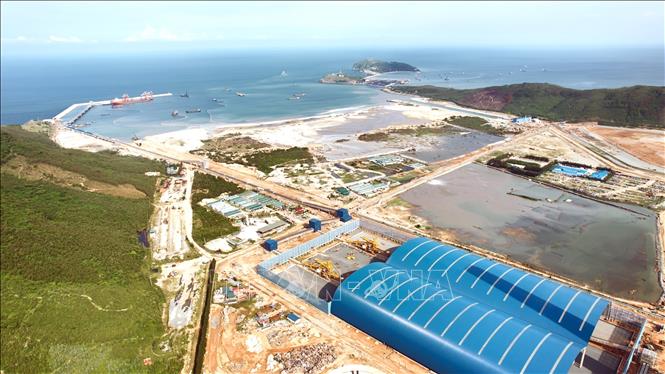
“Growth first” to “development in harmony with nature”
In previous stages of development, the central task was often understood as “ economic development”, associated with the process of industrialization and modernization. The environment and society were often placed in a supporting position, or as a consequence of growth that needed to be overcome. Now, by placing “environmental protection” on par with socio-economic development, our Party has demonstrated a fundamental innovation in development thinking, shifting from the perspective of “growth first, environmental treatment later” to “harmonious development, friendliness and progress with nature”.
This is a strategic shift, stemming from a deep understanding that the environment is not only a living space, but also the foundation, conditions and limits of development. Socio-economic development cannot be sustainable without ensuring ecological safety and natural balance. The mindset of “environmental protection is the central task” reflects the completion of Vietnam’s approach to sustainable development - a development model based on three pillars: economy, society and environment.
The economic pillar ensures growth, creating material resources for society; the social pillar aims at fairness, stability, and human development; and the environmental pillar plays a role in maintaining the ecological foundation, ensuring natural conditions for the existence of the other two pillars. When the environment is put on an equal footing, our development thinking has reached a balance between growth - social progress - ecological conservation, in line with the spirit of the United Nations 2030 Agenda for Sustainable Development and international commitments on climate change.
This shows that Vietnam not only integrates economically, but also in terms of development thinking; in which development must ensure that "nature is not destroyed, and people are not left behind". The way of posing the issue of "environmental protection as a central task" has three prominent meanings: It is theoretical, this is a creative development of Marxist-Leninist thought and Ho Chi Minh's thought on the relationship between people and nature. President Ho Chi Minh once emphasized: "Nature is a companion of people" and "deforestation is a crime". Putting the environment on par with the economy and society is the concretization of that spirit in new conditions, when climate change and ecological degradation have become global survival challenges.
In terms of politics and society, this is an affirmation of the Party's long-term vision, aiming for a development model that is both prosperous and ecologically safe, ensuring benefits for present and future generations. This thinking helps strengthen people's trust in the country's development path, demonstrating the humanity and responsibility of the ruling Party.
In practice, considering the environment as a central task will lead to profound adjustments in development policies, from planning, investment to resource management, to create a green, circular and low-carbon economy.
In the next two decades, this perspective will profoundly shape Vietnam's development model in many aspects such as: transforming the growth model towards green - circular - low-emission. Developing clean industry, organic agriculture, renewable energy, green transportation will become the main driving force. Energy-consuming and highly polluting industries will gradually be replaced by digital technology, biotechnology and knowledge economy.
Along with that is creating momentum for institutional and policy reform. The State will need to build a modern, transparent environmental governance mechanism, combining economic instruments (carbon tax, green bonds, emission credits) with legal instruments and digital technology in monitoring.
In addition, it is necessary to reshape the regional development structure. Development regions must be based on ecological capacity, resources and environmental infrastructure. Each region and locality needs to have a "sustainable development threshold", not exceeding the natural carrying capacity; promote social transformation towards ecological culture - considering green lifestyle, responsible consumption, energy saving and waste reduction as new standards of modern civilization. Those orientations, if seriously implemented, will help Vietnam achieve the goal of rapid development while ensuring "national ecological security" - the fundamental condition for sustainable and safe development.
Realizing green thinking
To realize the viewpoint that “environmental protection is the central task”, it is necessary to synchronously deploy many groups of policies and specific actions. Accordingly, institutionalize and integrate them into planning and development plans. All national, sectoral, regional and local planning must incorporate environmental indicators as mandatory criteria, independently assessed before approval. Indicators such as renewable energy ratio, waste recycling ratio, air quality, forest area, clean water usage ratio, etc. need to be clearly defined, with responsibilities assigned to each level of government; consider the assessment of “ecological carrying capacity” as a prerequisite for all large investment projects.
At the same time, promote green finance and sustainable investment. Develop tax incentives, green credits, and environmental bonds for businesses investing in clean sectors. Form a national green development investment fund to support technology transformation for small and medium-sized enterprises. Apply carbon pricing mechanisms and commercialize carbon credits to both generate revenue for the budget and promote emission reduction.
At the same time, manage regional and local development in an ecological direction. Each locality needs to have an ecological development map, identifying areas allowed for industrial development, conservation areas, organic agriculture areas, green urban areas; strengthen regional linkages in environmental treatment, especially in terms of water resources, air, solid waste and biodiversity; encourage regional development models based on ecosystem services, such as payments for forest environmental services, ecotourism, low-carbon agriculture. In addition, specify environmental indicators in socio-economic development plans.
In the 5-year socio-economic development plan, it is necessary to clearly define quantitative environmental targets: reduction of average annual greenhouse gas emissions; solid waste recycling rate; area of conserved natural forests; proportion of clean energy in total supply; national average air quality index (AQI); level of biodiversity loss, etc. These indicators need to be made public, independently monitored and be mandatory criteria in assessing the completion of tasks of all levels of government.
Sustainable development is not only the task of the state, but also the responsibility of the whole society. Therefore, it is necessary to promote environmental education in schools, mass media, the movement of "all people protecting the environment", linking environmental protection with ethics, lifestyle and national cultural identity. Forming a Vietnamese ecological culture - considering the protection of nature, saving resources, and using renewable energy as manifestations of civilization and patriotism in the new era.
Towards a harmonious, autonomous and green development model, the addition of “environmental protection” along with economic and social development as the central task in the draft documents of the 14th Party Congress is a historic development in the theoretical thinking of our Party. This affirms the strong transformation from a development model based on pure growth to a sustainable, humane and responsible development model. This is the right choice, demonstrating the Party's strategic vision for the country's future, towards a self-reliant economy, a fair and civilized society and a clean environment - three factors that create a comprehensive strength for Vietnam in the 21st century.
When “environmental protection” becomes the central task, it also means protecting the survival conditions of the nation, protecting the foundation for long-term development and happiness of the people. That is a testament to a new development mindset - the mindset of the green era; in which development is no longer an opposition to nature, but the art of living in harmony with nature, for people and for the sustainable future of the Fatherland.
Source: https://baotintuc.vn/thoi-su/bao-ve-moi-truong-nhiem-vu-trung-tam-phat-trien-ben-vung-20251112151729568.htm



![[Photo] Highways passing through Dong Nai](https://vphoto.vietnam.vn/thumb/1200x675/vietnam/resource/IMAGE/2025/11/12/1762940149627_ndo_br_1-resize-5756-jpg.webp)







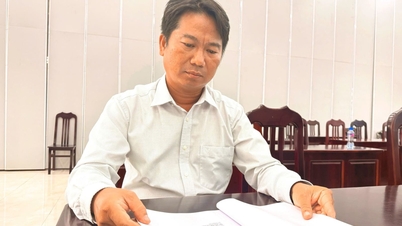
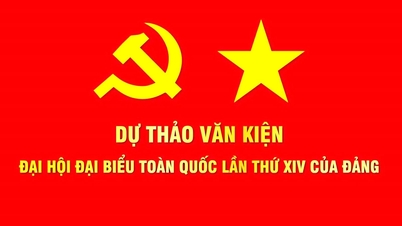

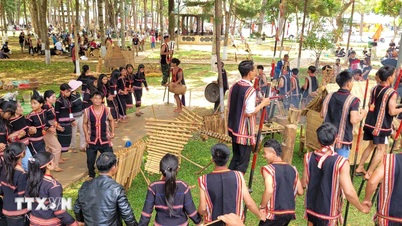

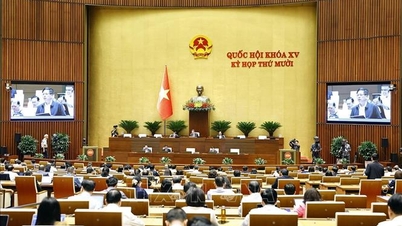



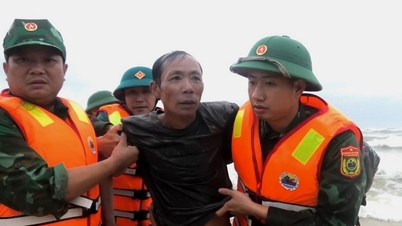






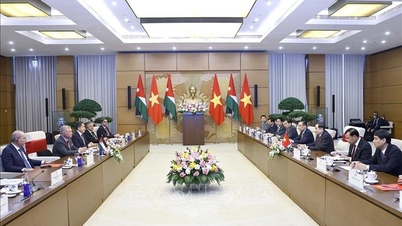
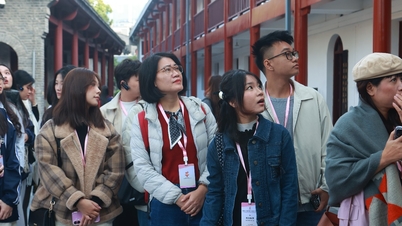
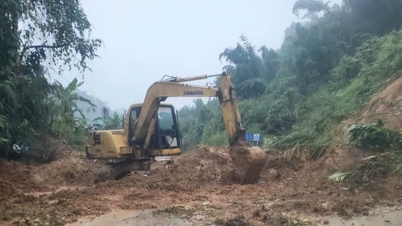
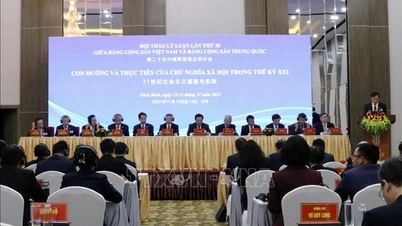
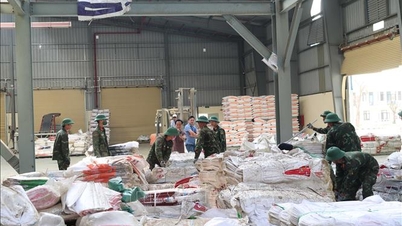
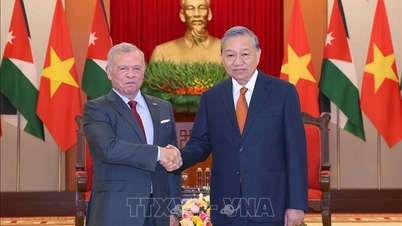






































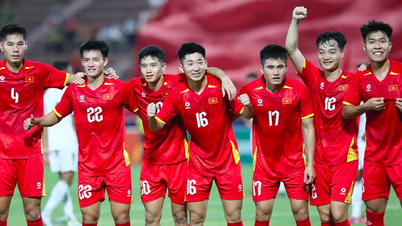

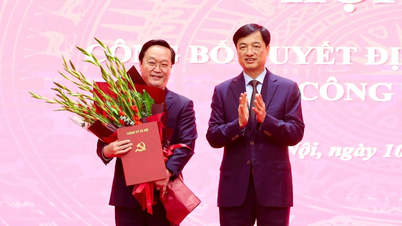




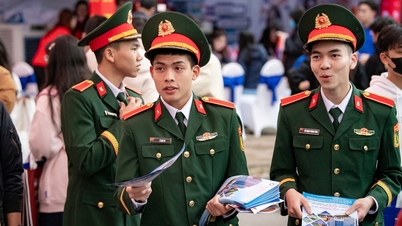
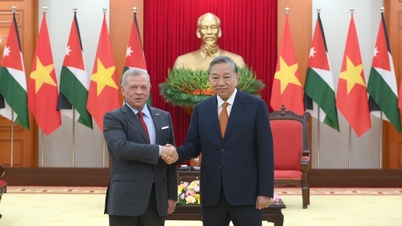
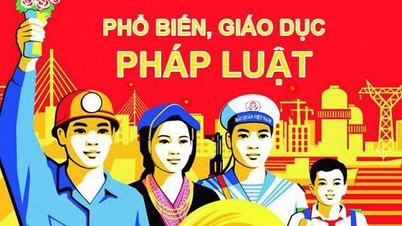

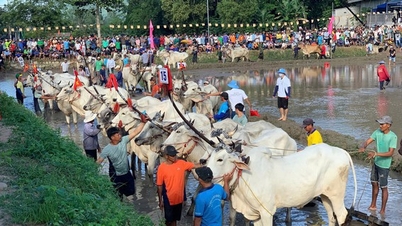

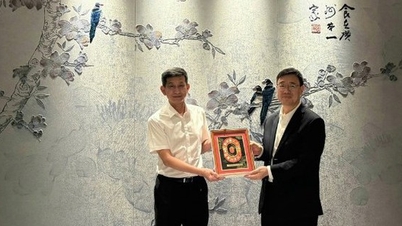
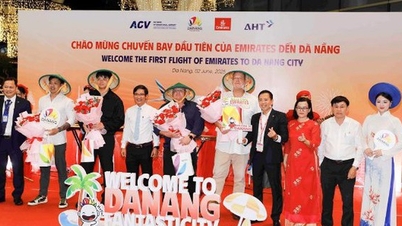



![[Photo series] Close-up of equipment installation for the 'heart' of Long Thanh Airport](https://vphoto.vietnam.vn/thumb/402x226/vietnam/resource/IMAGE/2025/11/12/1762949751087_anh_1_20251112170811_20251112184142.jpeg)


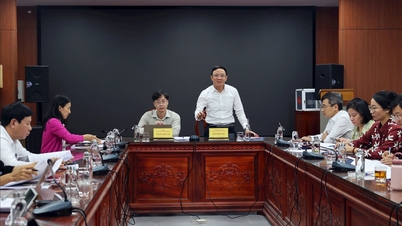
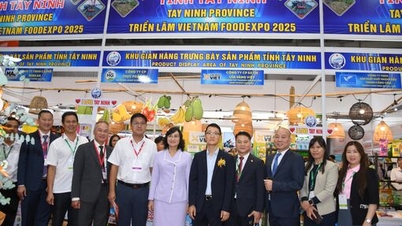

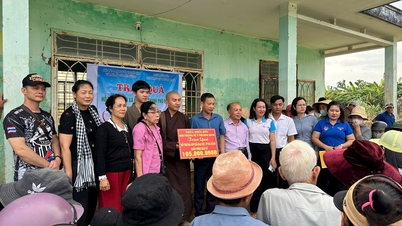



![Dong Nai OCOP transition: [Article 3] Linking tourism with OCOP product consumption](https://vphoto.vietnam.vn/thumb/402x226/vietnam/resource/IMAGE/2025/11/10/1762739199309_1324-2740-7_n-162543_981.jpeg)




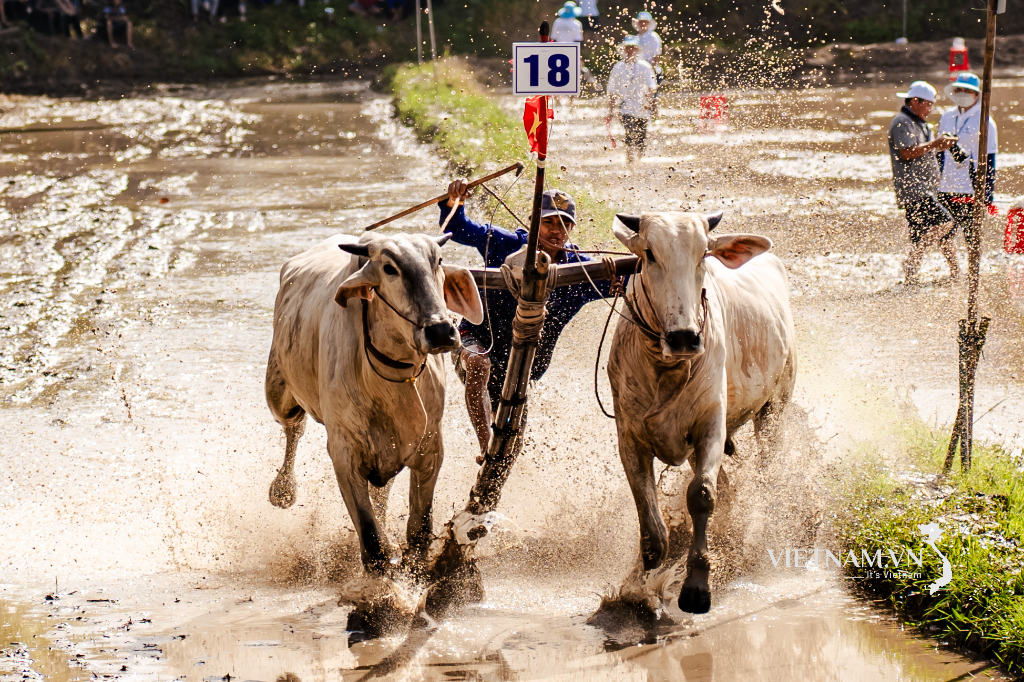



Comment (0)